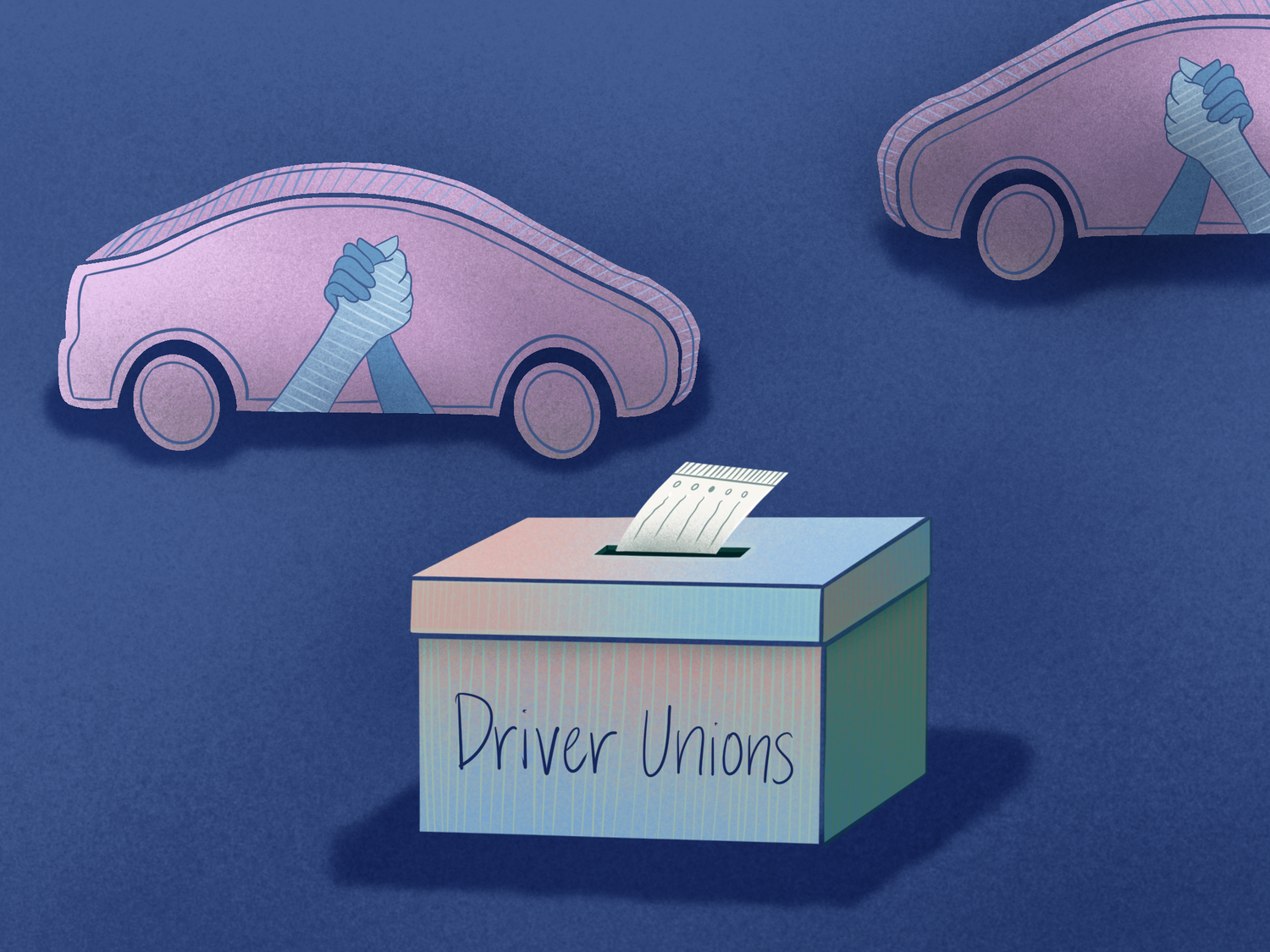
News
Summers Will Not Finish Semester of Teaching as Harvard Investigates Epstein Ties

News
Harvard College Students Report Favoring Divestment from Israel in HUA Survey

News
‘He Should Resign’: Harvard Undergrads Take Hard Line Against Summers Over Epstein Scandal

News
Harvard To Launch New Investigation Into Epstein’s Ties to Summers, Other University Affiliates

News
Harvard Students To Vote on Divestment From Israel in Inaugural HUA Election Survey
Massachusetts to Vote on Rideshare Driver Unionization in Ballot Question 3

As Massachusetts voters head to the polls, Ballot Question 3 will let them decide whether Uber and Lyft drivers will be able to form unions to negotiate their wages, benefits, and working conditions.
Ballot Question 3 would allow any active rideshare drivers — individuals who “completed more than the median number of rides in the previous six months” — to unionize. That would not include delivery drivers for companies like Amazon.
However, even if the ballot measure passes, drivers would still remain classified as independent contractors, not employees — a distinction that a lawsuit by the state attorney general, settled in June, also failed to change.
“These persons often suffer poor pay, inadequate health coverage, and irregular or inadequate working hours,” the ballot measure reads. “The best interests of the commonwealth are served by providing transportation network drivers the opportunity to self-organize and designate representatives of their own choosing, and to bargain collectively in order to obtain sustainable wages, benefits, and working conditions, subject to approval and ongoing supervision by the commonwealth.”
The ballot measure outlines a detailed process for drivers to unionize and collectively bargain. According to a summary from the Massachusetts Secretary of State’s Office, union membership must include at least 5 percent of active drivers and secure confirmation as the “exclusive bargaining representative” for 25 percent of these drivers in order to gain the authority to negotiate with employers.
The Center for State Policy Analysis at Tufts University described the plan as “a kind of ladder-climbing process for union formation and bargaining” in their report on the measure.
“If you’re not an active driver, you don’t get to choose your representatives; and if you drove less than 100 trips in the previous quarter, you won’t get to vote on contract terms,” Evan Horowitz, the center’s executive director, wrote in the report.
Once the union reaches an agreement with the companies, it must be approved by a majority of drivers who have “completed at least 100 trips the previous quarter.”
Though the concept of allowing gig drivers to unionize has drawn little public opposition, even from their biggest employers like Uber and Lyft, some labor advocates are arguing against the proposition under the belief it is not expansive enough.
Across the country, the conversation about which workers have the right to unionize has increasingly focused on classifying drivers as employees rather than as independent contractors. However, courts and voters in California, Seattle, and other regions have rejected these efforts.
In Massachusetts, the attorney general recently led a successful lawsuit against Uber and Lyft, accusing them of violating state labor laws by refusing to classify drivers as employees, which denied them minimum wage and basic benefits.
The companies settled that lawsuit in June for $175 million and agreed to offer significant benefits, including a $32.50 minimum hourly wage and sick time. However, they maintained the classification of their workers as independent contractors rather than employees.
Ultimately, a “no” vote on the ballot measure would preserve the current system, where independent drivers receive basic wage and benefit guarantees. A “yes” vote would give workers more power to negotiate their working conditions through unionization.
United for Justice, a group advocating a “yes” vote on the question, has raised over $6 million for the cause.
“Question 3 would give rideshare drivers new leverage to improve their working conditions,” Horowitz wrote in the report. “And that’s really the point — not just to create a mechanism for unionization but to ensure that drivers can ‘obtain sustainable wages, benefits and working conditions.’”
—Staff writer Sally E. Edwards can be reached at sally.edwards@thecrimson.com. Follow her on X @sallyedwards04 or on Threads @sally_edwards06.
—Staff writer Jack R. Trapanick can be reached at jack.trapanick@thecrimson.com. Follow him on X @jackrtrapanick.
Want to keep up with breaking news? Subscribe to our email newsletter.
